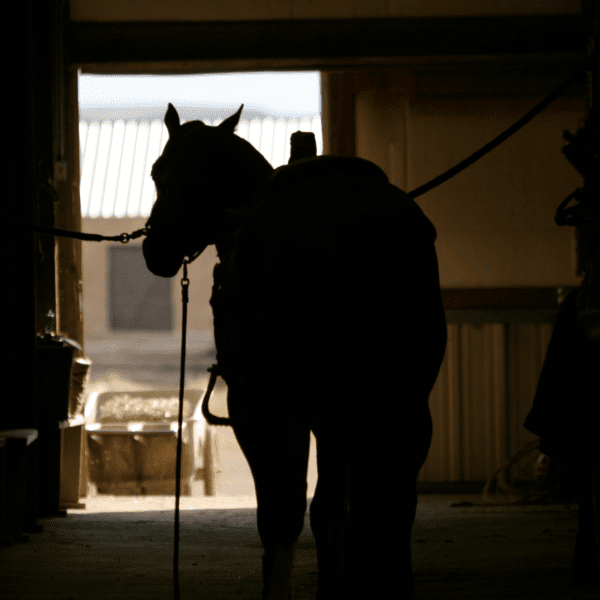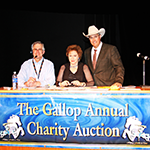In part 2 of our series, Not Making the Cut: How to Decide if It’s Your Horse or Trainer, we continue the discussion of how to determine your next step in the difficult task of deciding whether the horse is just not good enough or the trainer is not the right match for your horse.
If you missed Part 1 of this series or need to refresh your memory, please click here before continuing on to Part 2. The discussion continues below.
Set realistic goals and communicate, communicate, communicate
Once a horse and trainer are chosen, the next step is setting realistic goals that the horse, trainer and owner are all able to work toward collaboratively.
“Be honest with yourself about what you want to get out of your horse. You have to know what level you want to be and have some accountability on your end. For us, we want futurity champions, but every horse has its level. You can’t buy any old horse and make it into a Congress Champion,” says Amy Mackie-Smith, an Amateur and well known breeder.
Trainers and owners agree – when it comes to being successful as a trainer-owner team, honest and respectful communication is the number one necessity. As long as everyone is honest and open, difficult conversations can be made easier.
“Ultimately, trainers are responsible for taking care of a customer’s investment and try to accomplish their goals and expectations. I feel that if customers verbalize their expectations, and have honest communication about situations that may arise through the process, then a trainer is able to fix them, or perhaps not. At this point, an amicable decision can be made to correct things, whether that’s finding a different trainer or a different horse,” Trainer Keith Miller says. “After that, should things not change and a customer decides to leave, then trainers aren’t surprised – or shouldn’t be as surprised – to get the phone call.”
Jan Shepherd Pittman, who owns VS Code Blue, reiterates the point, adding that she addresses the “what-if’s” at the start of the training process, which makes it easier to tackle difficult decisions and conversations should they arise down the road.
“We talk about [what happens if a horse or trainer isn’t working] up front; it’s not what anyone wants to hear, but it’s reality. If it’s not working, I want to know,” Pittman says. “The trainer is my representative, and I’m paying for a service. As a consumer, I should be equipped with my questions and get those questions asked and answered up front. That way, if something doesn’t work out, we each know what the other expects. We’re all on the same page. Part of this business is communicating.”
Nurture and trust in the trainer-owner relationship
Once you’ve settled on a horse and a trainer and you have had a goal-setting conversation in which you address the what-if’s, then it’s time to buckle in and get ready for what you all hope is a thrilling ride.
“Except for the very few people who have the one horse they’ll have the rest of their life, most are going to go through several horses – and perhaps trainers,” says Jason English, who is a trainer based in Georgia. “No matter what, though, everyone should try to build a relationship with their trainer and preserve that. Trust that person. There’s not a huge number of people in this industry. As an owner/customer, if you go bouncing around from trainer to trainer, sooner or later there’s not going to be a trainer left that’s willing to take you in.”
Again, it comes down to communication says Mackie-Smith, who says she believes in sticking it out with a trainer and having faith in their program. Understand that a program takes time and each horse is different.
“Obviously, trainers don’t want to call you with a bad report all the time, especially for a smaller trainer, every horse in their barn is their income. The horse owner needs to understand that horses are animals and that they’re not always going to be great. I’ve always respected honesty and I’ve never felt wronged by a trainer,” Mackie-Smith says.
“Honesty and loyalty and to treat each other with respect on the days their horses win and the days their horses don’t win. It’s easy to celebrate together when the horse just won, but you have to maintain a trusting relationship when it’s both good and bad,” English says.
Beth Case of Highpoint Performance Horses adds, “If a trainer tells you it’s not good enough – it’s probably not. You can always take it to a different trainer, and they may say the same thing, in which case it’s obviously the horse. If a trainer doesn’t get along with a particular horse, most will discuss their client’s options including the possibility of trying a different trainer.”
Take responsibility, do your best for yourself and your horse and seek honesty
All owners and trainers want a happy ending as they journey toward the show pen, but that requires each in the relationship to take responsibility for the goal and to practice honesty throughout the relationship. If there is any concern about whether someone is holding up their end of the deal, be ready to start evaluating yourself, your horse and your trainer.
Your first responsibility needs to be to the horse. “Anybody who buys a horse needs to make sure it’s taken care of. It is the owner’s responsibility as well as the trainer’s,” English says.
If the horse isn’t being taken care of to your liking, it’s time to be honest with the trainer and, above all, an advocate for the horse.
”If the relationship isn’t working out, but the horse is in good body condition, with good weight, hair, feet and it’s in shape, then it’s being worked and ridden. I’d have to say in that case, it’s probably an issue with the horse, but if the opposite is true, then, it may be the trainer,” English says.
Both trainers and expert owners interviewed agreed that, though it’s disappointing when a horse doesn’t end up being quite what everyone hoped, it can go on to have a very successful career in another event, whether that means the owner changes their focus or the horse finds a new home.
“I think there’s a class for almost all horses. Sometimes we try to make them fit in a box they don’t belong,” Pittman says. “Showing is very competitive, and it’s hard and it’s tough. Not all horses are going to be World champions or Congress champions. But some of them could still be a lot of fun.”
About the author: When she isn’t wrangling 12 and 13 year-olds in her middle school English classroom, Megan Ulrich enjoys riding, showing and judging horses. She lives in Holmen, Wisc., with her husband, daughter, two dogs and two horses. She earned her journalism degree from the University of Wisconsin-Madison.








